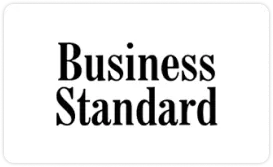
Key Highlights from the 23 May 2025 NSW 491 Invitation Round
Introduction to NSW 491 Visa
If you’re looking to settle in regional Australia with a pathway to permanent residency, the NSW 491 visa is one of the top options out there. The latest invitation round on 23 May 2025 turned a lot of heads—and for good reason.
What is the NSW 491 Skilled Work Regional Visa?
Purpose and Benefits
The Skilled Work Regional (Provisional) visa – Subclass 491 is designed to attract skilled migrants to regional New South Wales. It offers:
- A five-year provisional visa
- A pathway to permanent residency (subclass 191)
- The great opportunity to live, work, and study in favourable regional areas
Who is it for?
It’s for specially skilled workers who are nominated by a state or territory government. NSW runs its own nomination process with a focus on regional workforce needs.
Overview of the 23 May 2025 Invitation Round
How Often Does NSW Conduct Invitation Rounds?
Unlike other states with set dates, NSW runs invitation rounds at random intervals throughout the year. This surprise factor means applicants need to always be ready.
What Made This Round Stand Out?
The diversity of occupations invited and the variation in required points made this round particularly unique. It wasn’t just the usual IT-heavy invite list—tradies and teachers saw real traction too.
Occupations That Received Invitations
Onshore Occupations
Here are some key occupations invited within Australia:
| 1. Air Conditioning Mechanic | 75 points |
| 2. Bricklayer | 100 points |
| 3. Carpenter | 90 points |
| 4. Urban & Regional Planner | 105 points |
Offshore Occupations
Skilled professionals from overseas weren’t left out:
| 1. Analyst Programmer | 105 points |
| 2. Architectural Draftsperson | 90 points |
| 3. Construction Project Manager | 85–90 points |
| 4. Retail Pharmacist | 100 points |
| 5. Registered Nurses | 85–95 points |
High-Demand Skilled Trades
It’s exciting to see bricklayers, carpenters, and fitters in the spotlight again. These practical trades positions are finally getting the recognition they really deserved to be.
Healthcare and IT Dominance
As always, healthcare professionals and software engineers continue to be heavily invited, highlighting the demand for these critical services in regional NSW.
Required Points by Occupation
Points Range Breakdown
Here’s a snapshot of the point ranges by occupation:
- Software Engineer / Developer Programmer – 105–110 points
- Early Childhood Teacher – 95–100 points
- Fitter (General) – 70–75 points
- Policy & Planning Manager – 65 points
Comparison of Onshore vs Offshore Requirements
Interestingly, offshore applicants needed higher points on average—possibly due to limited places or competition. Meanwhile, onshore applicants with regional experience often succeeded with fewer points.
In-Demand Occupations Snapshot
Software Engineers & Developer Programmers
These roles hit the highest point thresholds (up to 110 points), showing fierce competition but also high demand.
Registered Nurses
Nurses across specializations received invitations with 85–95 points, whether they were in Australia or applying from abroad.
Early Childhood Teachers
A standout occupation this round—both onshore and offshore teachers received invites with scores between 95–100 points.
Construction Project Managers
With infrastructure booming, construction managers were invited at 85–90 points, mostly offshore.
Surprising Occupations That Got Invited
Bricklayers and Carpenters
Trades like bricklaying (100 points) and carpentry (90 points)—often overlooked in tech-heavy rounds—shone in this one.
Policy & Planning Managers
With only 65 points, this occupation had the lowest threshold, proving NSW is targeting specific niche skillsets.
NSW 491 Nomination Process Overview
EOI Assessment Criteria
EOIs are judged on a mix of:
- Age
- English proficiency
- Education level
- Years of skilled experience
- Points score
How Invitations Are Prioritized
NSW assesses EOIs based on regional demand and may prioritize those already living or working in regional NSW.
Strategies to Boost Your Points
Gaining Extra Work Experience
The more years of skilled work under your belt, the better. This can earn you up to 15 points.
Improving English Proficiency
Achieving superior English can boost your score by 20 points. It’s worth investing time here.
Regional Study & Work
Studying and working in designated regional areas can not only gain extra points but also increase your nomination chances.
Tips for a Strong Expression of Interest (EOI)
- Keep your documents updated
- Tailor your occupation details clearly
- Avoid errors and mismatches
- Include regional ties if any
Key Takeaways for Future Applicants
- Stay ready—invitation rounds are not announced in advance
- Aim for 95+ points to be competitive, especially offshore
- Trades and healthcare are rising stars—don’t overlook them
- The more regional commitment you show, the better
What This Invitation Round Means for 2025–2026
This round signals a diversified approach to skilled migration. NSW is broadening its reach, targeting not just IT and healthcare but also skilled trades, education, and niche managers.
It’s likely we’ll see more rounds like this, especially as regional areas push for faster population and economic growth.
Final Thoughts
The 23 May 2025 NSW 491 round gave us a peek into NSW’s evolving immigration strategy—inclusive, balanced, and opportunity-rich for a wide range of skills. Whether you’re a seasoned developer, a passionate early childhood educator, or a hands-on carpenter, there’s room for you in regional NSW—if your EOI is sharp and your timing is right.
FAQ's
It varies by occupation and applicant location. In this round, the lowest was 65 points (Policy & Planning Manager), but most successful candidates scored 85+ points.
Yes! This round saw many offshore invitations, especially in IT, healthcare, and management roles.
Absolutely. NSW prioritizes those with genuine regional ties, including work, study, or residence in regional NSW.
Focus on English scores, work experience, Australian study, partner skills, and regional experience.5. How often does NSW conduct 491 invitation rounds?
There’s no fixed schedule. NSW holds rounds throughout the financial year based on its needs
Improve your language scores, pursue a job offer, or apply for PNPs aligned with Express Entry.










